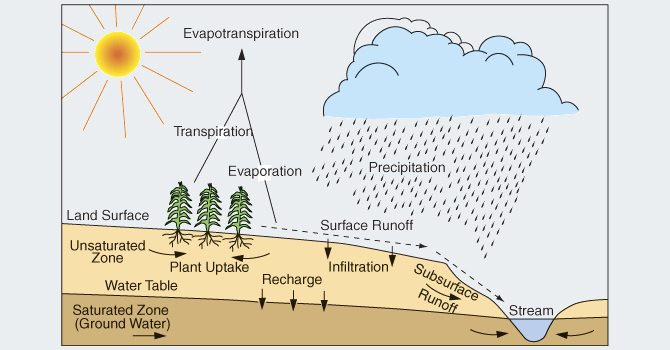To wash or not to wash greens with soap-water to get rid of virus?

By Arpana Adhikari
Kathmandu, Apr. 27: As the spread of coronavirus (COVID-19) has been ramping up in Nepal, people continue to live under self-quarantine despite all odds to prevent the virus outbreak.
Among many of the precautions taken during this time, people are aware of hand washing and social distancing to avoid the infection.
However, the need for essential items like fruits and veggies and grocery prompts people to leave the confines of their houses.
To reduce the risk of virus transmission, people are following certain precautions while buying the groceries like washing their hands once they get home from the grocery store, place groceries on a surface they can clean, unpack groceries, clean the surface and wash their hands again.
And those who particularly worry wipe down glass jars, plastic packed foods with a disinfecting sanitizer or soapy water or transfer the food items to a new container.
But the major worries that are popping up among people are to sanitize the fresh fruits and veggies they brought from the market.
Because the fresh produce goes through quite a long journey before it arrives at their homes, they might pick the virus on its surface.
The Federal Drug Administration (FDA) claimed that there is currently no evidence of COVID-19 transmission through food or food packaging. But there is a need to sanitize fruits and vegetables before consuming them.
Due to the underlying fear of coronavirus, some people are found using soap and detergent to clean the fresh produces.
Pratima Chalise, a resident of Koteshwor, said after the case of COVID-19 started increasing in Nepal she started cleaning fresh produce with soap water.
“I use soap water to clean all the fresh produce before I take them to kitchen. I do this in fear of getting infected with the virus and I know that my diabetic in-laws would be hard hit by the virus if this happens.”
Ravi Thapa, a 40-year-old engineer of Gyaneshwor, has been following the same precaution to prevent possible infection of virus from the fresh produce.
Thapa said, “My family is following a simple step to avoid the virus infection. Once we come back home from grocery shopping, we clean the packed grocery items with sanitizer or Dettol and water solution. And we soak all the fresh produce in soap water for five minutes and rinse it in running water.”
He said he was following the instruction as seen in a video published on Facebook.
Similarly, Shanta Baidhya, a 50-year-old housewife of Jorpati, has been following another method to sanitize fresh produces by soaking them in baking soda and water solution.
“Once I buy green vegetables and fresh fruit from grocery store, I put them in baking soda and water solution for half an hour and later rinse with water.”
Like Thapa, Baidhya has learned this method from the Facebook.
But food safety experts advise people not to use soap and baking soda to clean the fresh produce.
However, they suggest that practicing the right protocols to handle food is of optimum importance.
Nutritionist Dr Ojaswi Acharya said although virus will not grow in or on foods, raw fruits and vegetables may serve as vehicles for infection. She suggested practicing the right protocols.
She advised people not to clean the grocery and fresh produce with soap water, disinfectant, bleach and baking soda.
She said, “Consuming soap can cause nausea, vomiting and other forms of gastrointestinal distress while baking soda removes essential nutrition like vitamin C from fruits and vegetables.”
Stating that the fruits and veggies might have been touched by several people, gone through various surfaces before landing up at people’s home, Dr Acharya said. “We should follow certain steps to free fresh produce from virus.”
“We can use the solution of warm water and apple cider vinegar (ACV) or lemon juice to clean the fresh produce. All you need is a big bowl of water and two tablespoons of apple cider vinegar and this could kill germs, bacteria and remove substantial chemicals and pesticides.”
Research has shown that ACV inhibits growth of many bacteria. “We should first clean fresh veggies thoroughly with running water and then dip them in the solution of ACV and warm water for five minutes. People must make a habit of sanitizing fruits and vegetables even after the pandemic.”
Dr Acharya also asked people to prepare disinfection spray for foods and groceries by using three parts of water and one part of vinegar.
However, Dr Acharya advised people to take extra precaution while taking fresh produce inside their home and before cleaning them with the solution of water and ACV. “People should wash their hands immediately after they reach their home and clean the fresh produces.”
She further asked people to avoid consuming raw fruits and vegetables for a certain period of time. “One can consume fruits that can be peeled off and cook veggies well instead of consuming them as salad.”
Recent News

Do not make expressions casting dout on election: EC
14 Apr, 2022
CM Bhatta says may New Year 2079 BS inspire positive thinking
14 Apr, 2022
Three new cases, 44 recoveries in 24 hours
14 Apr, 2022
689 climbers of 84 teams so far acquire permits for climbing various peaks this spring season
14 Apr, 2022
How the rising cost of living crisis is impacting Nepal
14 Apr, 2022
US military confirms an interstellar meteor collided with Earth
14 Apr, 2022
Valneva Covid vaccine approved for use in UK
14 Apr, 2022
Chair Prachanda highlights need of unity among Maoist, Communist forces
14 Apr, 2022
Ranbir Kapoor and Alia Bhatt: Bollywood toasts star couple on wedding
14 Apr, 2022
President Bhandari confers decorations (Photo Feature)
14 Apr, 2022










